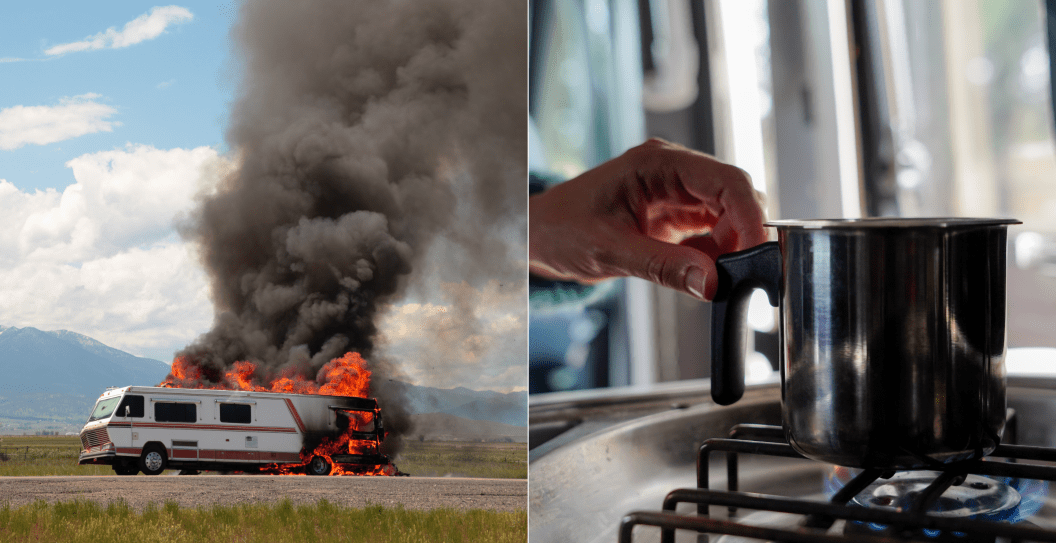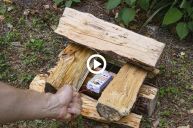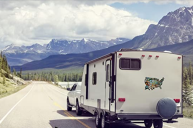Heading out into nature in an RV makes for an easy camping experience. RVers can pull into their spot, hook up, and they're ready to go. So it's no surprise that RV camping has become popular over the last couple of decades. Just last year alone, more than 35 million Americans camped in an RV. But with so many people taking their fifth wheels, travel trailers, and motorhomes out on the road, it's important to keep fire safety in mind.
While a lot of camping fire safety advice centers around tent camping, campers who use recreational vehicles also need to be aware of dangerous fire situations in and around their rigs. Unfortunately, fires can happen inside and outside your RV and—even more worrisome—when moving or parked. The best way to keep your RV and tow vehicle safe is by being proactive with maintenance schedules and practicing fire prevention.
How Common Are RV Fires?
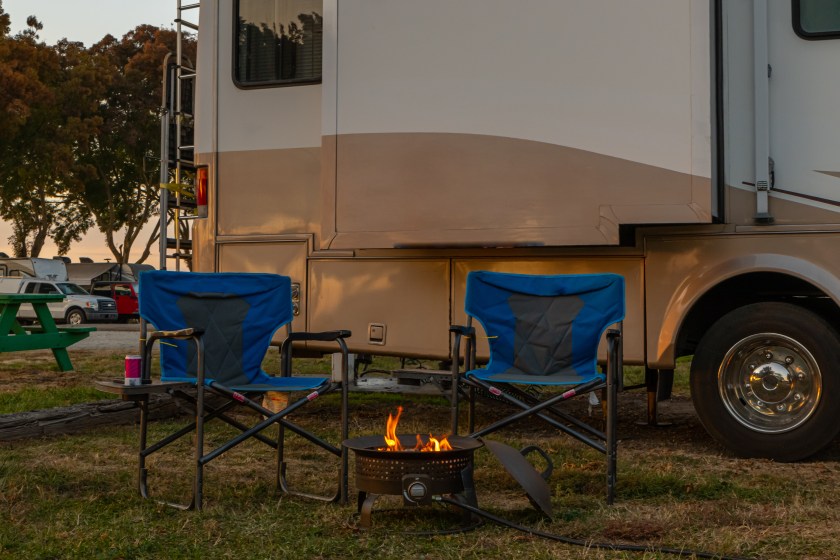
Getty Images, Larry Crain
According to a 2020 report, 1,920 RV fires occured every year between 2008 and 2017, as recorded by the Fire Protection Research Foundation (FPRF). On average, the fires resulted 64 injuries and 24 deaths a year. Importantly, smoke alarms play a huge role in saving lives: Out of the 230 fires where the was an operating smoke alarm present, there were four injuries and one death.
Where Do Most RV Fires Start?
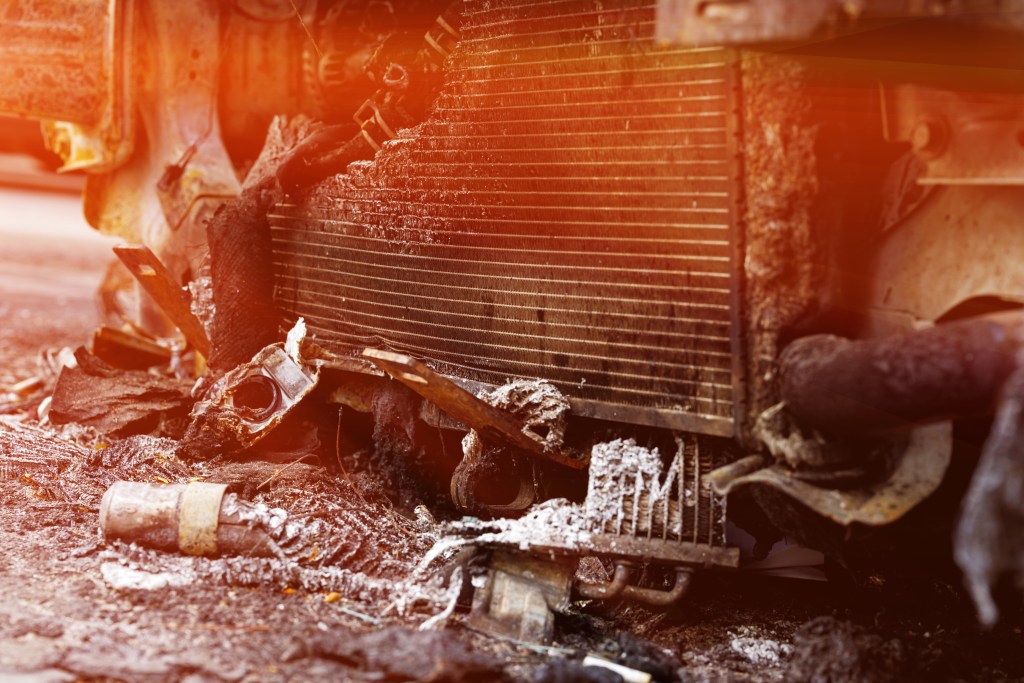
Getty Images, Lari Bat
Per the same report, most fatal fires occur in older models of RVs, as they have fewer and less advanced fire safety protections. They also have older engines and equipment that are more likely to fail, a common cause of fires. The two most common places where fires started, each accounting for 16 percent of blazes, were the vehicle engine area, running gear or wheel area, and the kitchen or cooking area.
Because electrical failures and malfunctions are one of the most common contributing factors, RV owners should routinely inspect electrical outlets, extension cords, and all 12-volt connections throughout the trailer to ensure they are in good condition before every trip. They should also check for malfunctions in their burners, propane systems, hoses, and engine compartment for additional fire hazards.
What Type of Fire Extinguisher Should Be in an RV?
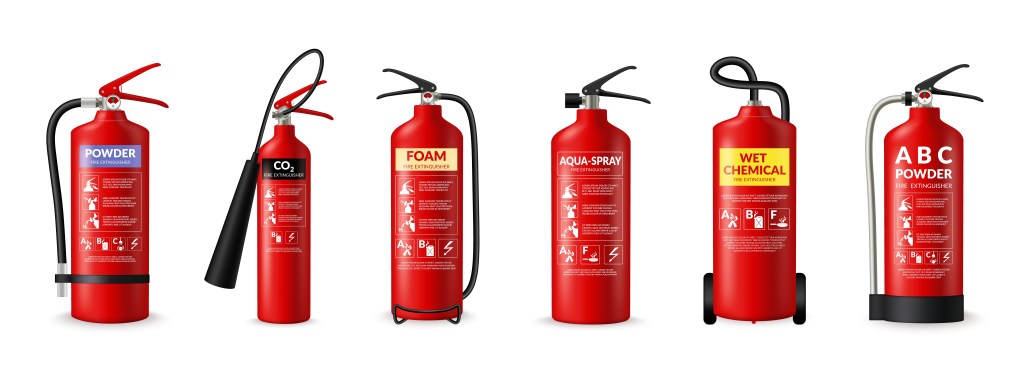
Getty Images, Natalia Misintseva
RVers should always have a fire suppression system in their rigs. The NFPA requires a Class B:C fire extinguisher be carried because of the risks of propane leaks, engine fires, or gas spills on top of electrical fires. It can be a portable fire extinguisher or a professional or commercial-grade unit.
If you get a portable system, you don't need to have it professionally inspected by the fire department or a specialty agency. However, giving your extinguisher a once-over should be a part of your regular RV maintenance. Look for cracks in the canister and signs of damage. Also, verify that the gauge is set to green. If you opt for a commercial-grade unit, you must schedule an annual inspection to ensure it's in working order.
RV Fire Safety Tips
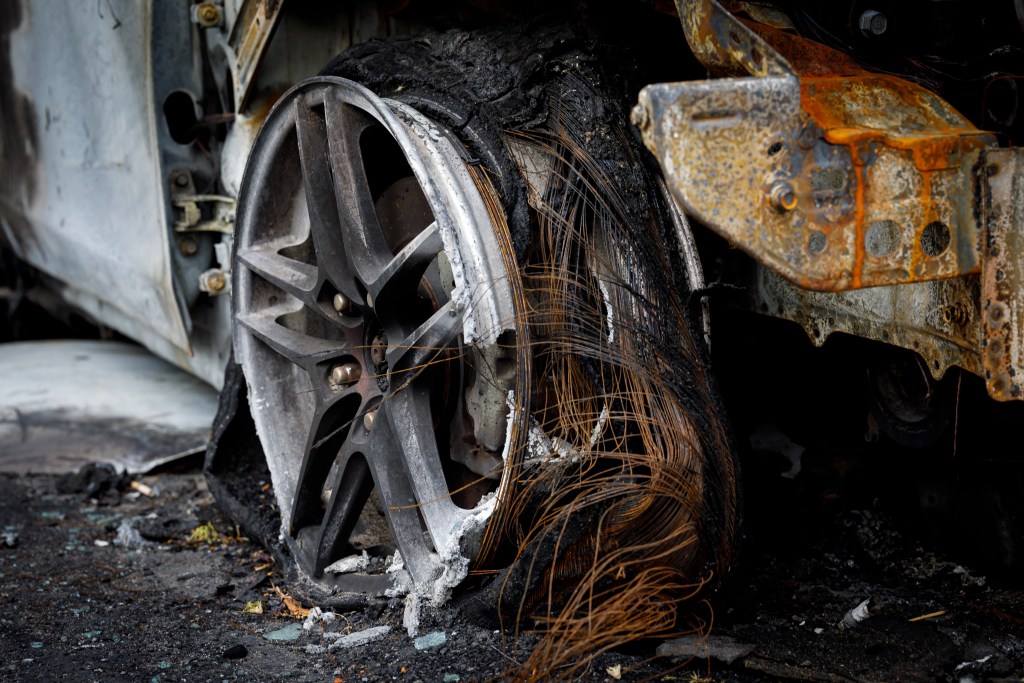
Getty Images, Lari Bat
RVers should always have a fire safety plan that includes knowing where their emergency exits and hatches are and how to operate them. It's also important to have an escape route planned out from the campground in case of a forest fire. If you're camping with friends, make sure everyone knows the escape plan and where you will meet up in an emergency.
Avid traveler and RV expert Brandy Gleason shared with Wide Open Spaces some tips for keeping her Heartland Sundance Ultra-Lite Travel Trailer fire safe.
- Check your smoke detector: Before you head out on a trip, make sure your smoke detector has new batteries and conduct a quick test to ensure it's working properly.
- Check your carbon monoxide detector: Be sure to periodically check your CO detector to ensure it's working properly, too. Your detector should have a specific "test button" to hold for a few seconds until the alarm sounds.
- Check your emergency egress windows: First, identify your egress windows, then familiarize yourself with the lever and practice opening the window. If the window has a screen, locate the pull tabs along the sides and test how the screen pops out.
- Know your fire extinguisher: Know exactly where your RV's fire extinguisher is located and how to use it. The easiest way to remember how to operate a fire extinguisher is the acronym PASS: Pull, Aim, Squeeze, Sweep.
- Take care with campfires: Basic campfire safety is essential for any camping trip, whether in an RV or otherwise. Before starting a fire, ensure there's no current fire ban by checking the status online or asking at the ranger station or campground office. Fire bans mean you may not use anything with an open flame, e.g., campfires, gas lanterns, and propane camp stoves. If permitted, build your campfire a safe distance from your RV and never leave it unattended. When you're done enjoying the campfire, extinguish it completely.
- Double-check your propane: Always shut off propane tanks and drive with them disconnected. They will be less likely to explode if you get into an accident.
Following these simple tips will lead to wonderful and safe camping trips for years to come.
READ MORE: The Best Camping Memberships for RVs and Tents
